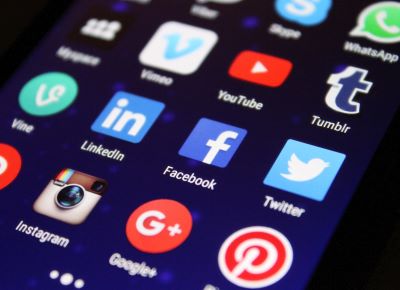Why You Should Avoid Social Media During Your Personal Injury Case
 Many people use social media today, for networking and to stay connected with family and friends. Although it may be a great tool for communication, social media can seriously impact your personal injury claim – and not in a good way. The best solution may be to deactivate your social media accounts for the duration of your case.
Many people use social media today, for networking and to stay connected with family and friends. Although it may be a great tool for communication, social media can seriously impact your personal injury claim – and not in a good way. The best solution may be to deactivate your social media accounts for the duration of your case.
How Can Social Media Harm Your Credibility in a Personal Injury Claim?
Insurance companies and defense attorneys can use social media in different ways to discredit your case. For example:
- Posts about your progress in recovering from your injuries can be used to minimize their severity.
- Pictures or comments can be taken out of context.
- Posting details of the incident before a thorough investigation is conducted could mean publishing misinformation or incriminating yourself.
- Posts about your condition can be used to show your claim is inconsistent.
- Posting about your medical care or injuries could give the insurance company or defense information to use against you.
- Pictures of you moving about normally posted after your injuries occurred can be used to discredit your pain and suffering claims.
- Pictures of you enjoying yourself with friends can be used to refute claims of emotional distress.
- Venting about the person who caused your injuries can be used by the defense to argue that your claim was filed for revenge.
Why Is It Better to Deactivate Your Account Than to Change Your Privacy Settings?
Deactivating social media accounts is a better option than changing your privacy settings. Investigators for the other side can work around privacy settings. In certain cases, opposing counsel can subpoena social media records. This means the other side gets a court order allowing them access to your social media, in which case your privacy settings cannot protect you. Even previously deleted posts and private messages could be viewed by the defense. You will be much better protected by stopping social media use altogether for the duration of your claim.
What Tips Should You Follow for Social Media Use During a Personal Injury Claim?
If you continue to use social media after a personal injury claim is filed:
- Switch all your profiles to private.
- Do not accept a friend or follow requests from anyone you do not know.
- Ask friends and family not to tag you in any pictures or videos to avoid giving investigators access to your history.
- Do not post anything about your personal injury case.
- Instruct friends and family not to post anything about your case.
- Refrain from commenting about any settlement you receive and instruct your friends and family to do the same – in some cases, public remarks could breach the settlement agreement.
- Carefully consider every post you make before you make it. Once made, deleting it may not be a solution, as digital communications can be recovered.
- When in doubt, remain silent.
Why Should You Talk to Your Friends and Family About Avoiding Certain Topics and Activities on Social Media?
What you do on social media can be used against you in a personal injury claim. The same applies to what your friends and family do. Sharing pictures, posts, videos, profile information, and comments on social media can undercut your claim. Investigators look for retweets, hashtags, mentions, comments, tags, etc. This is a good reason to ask family and friends to either leave you alone on social media. They should not tag you in pictures, videos, or post anything at all about your case.
At Bottlinger Law L.L.C., we have the knowledge, skills, and resources to provide effective representation in personal injury matters. Contact our Omaha personal injury lawyer at (402) 505-8234 to schedule a free consultation.
Bottlinger Law
Consultation Form
Our legal team is ready to help. Please fill out the form below to set up a free consultation with the Bottlinger Law team.